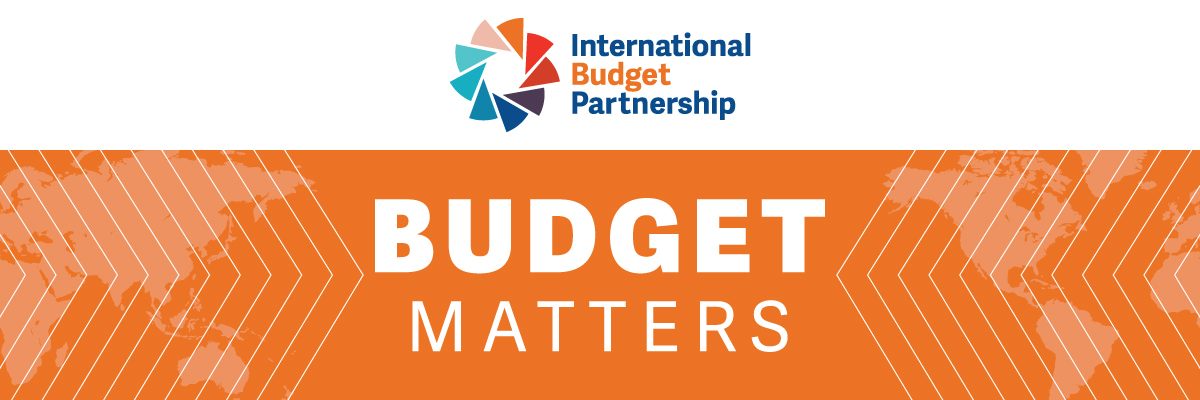
A message from Jennie Grant, IBP''s director for Partnership Development
The world just sat through a nail-biting electoral count in the United States, where we saw U.S. social movements drive up margins that flipped an electoral map and demanded that their voices and agenda be heard. Similarly, across the world, movements of citizens- from slum dwellers to small holder women farmers to people with disabilities-are making demands on governments and transforming the lived realities of their members. Despite logistical challenges and risk to life and livelihoods, the urgency of the COVID-19 moment has fueled these community organizers to innovate and more closely partner with governments to reinforce accountability.
Our SPARK (Strengthening Public Accountability for Results and Knowledge) initiative is a bold, innovative program that works with large, powerful civic organizations and social movements in Ghana, India, Indonesia, Kenya, Nigeria, Senegal and South Africa to engage government on the fiscal reasons underlying the service delivery gaps faced by their communities. At the core of this work is the belief that communities know best what their needs are and should be the ones to demand change. We know there is a strong link between poor budgets and poor services, but movements often have low levels of budget literacy. By working together, IBP and our partners seek to break historic, systemic exclusion of the most marginalized by ensuring these communities inform and watch over how resources are distributed.
Confronting the health effects and the economic upheaval of COVID-19 has required massive money flows, estimated at a staggering $12 trillion globally, as well as speedy decisions on government spending, all of which has underlined the importance of the SPARK approach. For instance, many governments needed quick solutions to ramp up health, water, sanitation, food security and social protection investments, but they were hampered by a lack of reliable and accurate data to identify eligible recipients. Our partners had the real-time information, and organizing power and influence in communities, that could help governments ensure their assistance reached those who needed it most.
In Nigeria, partners leveraged their communities' strong tradition of using town halls as a space for citizens to engage officials and pivoted to virtual town halls on Twitter, Facebook, Zoom and WhatsApp. Through social media and partnerships with journalists, they elevated attention to delivery gaps and helped get cash aid, fertilizer and seed to women farmers to mitigate the compounded effects of COVID-19 and drought on food security. In Senegal, our partner quickly mobilized to ensure disabled people were registered as eligible beneficiaries for the government's COVID-19 relief package. They also worked as a watchdog to monitor and report on how inclusive the government was being in delivering that assistance. In Indonesia, our partners developed a phone app to ensure large scale social audits were still conducted and as a result 3,000 new families in Jakarta were included into the Family Hope social protection program and over 26,000 received functioning food vouchers.
We do not know how long this pandemic will last, but we can assume that many marginalized communities will be hit hard as governments cut essential services in response to constrained budgets. The innovations emerging from our partners, combined with the budget knowledge they are building and new relationships with governments, will undoubtedly position them as essential players in making sure that governments deliver to all of their citizens, not just those who have historically held power. These are undoubtedly challenging times, especially for marginalized communities but there are also hopeful windows of opportunity to disrupt traditional ways of doing business. Through SPARK we hope to forge a new community-led model of holding governments to account.
For a deeper dive into our SPARK work during COVID-19, read our new paper and learn more about our partners in the stories below and on our website.
Marginalized communities weather the COVID-19 storm
Ghana
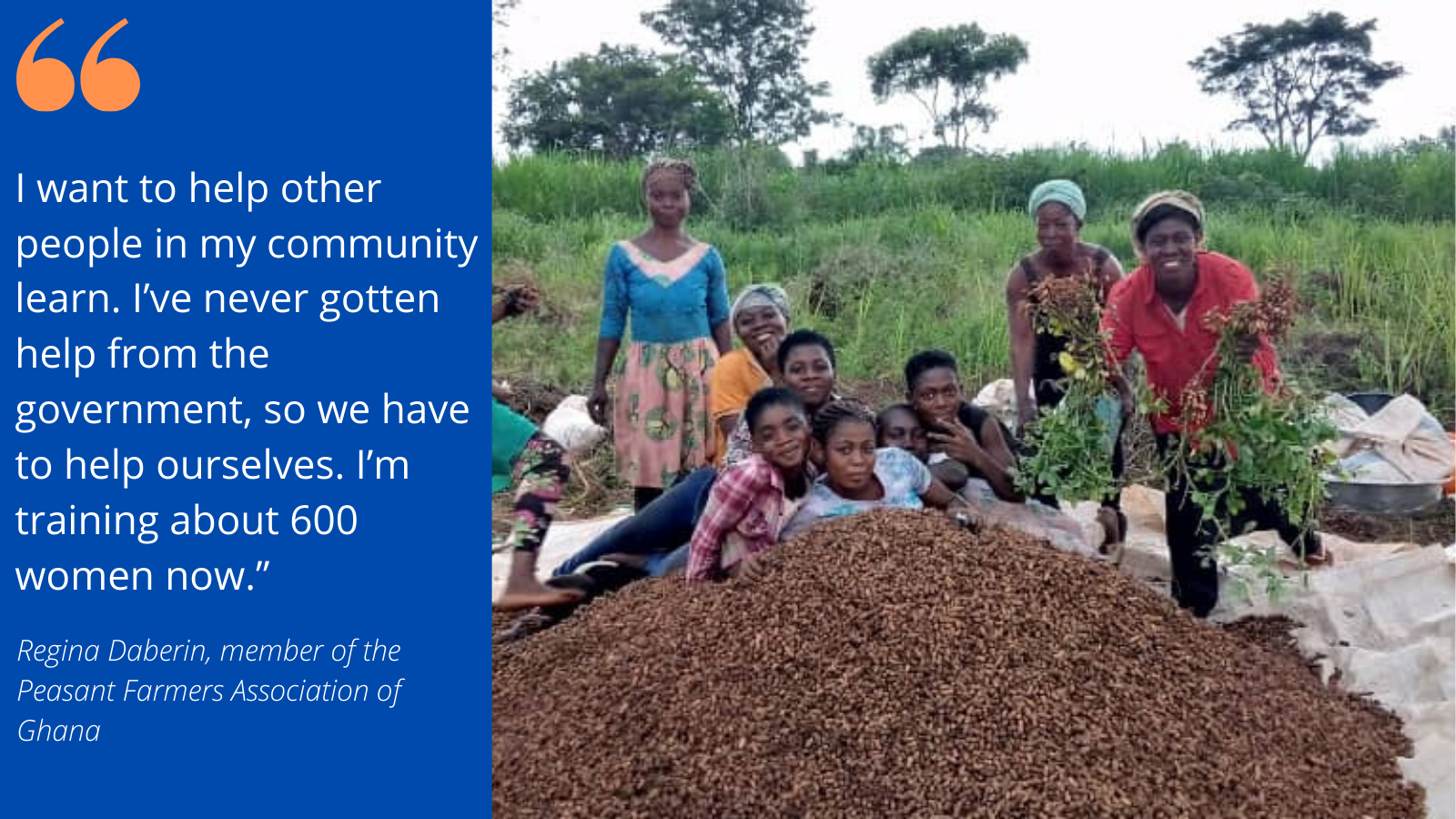
Small farmers provide 70-90 percent of food production in Ghana, but they have long been excluded from important budget discussions. Regina Daberin and her organization, the Peasant Farmers Association of Ghana (PFAG), quickly pivoted when COVID-19 hit to push for a government response strategy that prioritized agriculture. As a result, the government is increasing the number of fertilizer beneficiaries from 1.2 million to 1.5 million and PFAG is working with the government to build an independent database to track aid deliveries and expose black marketers that are manipulating the system. Learn more.
Indonesia
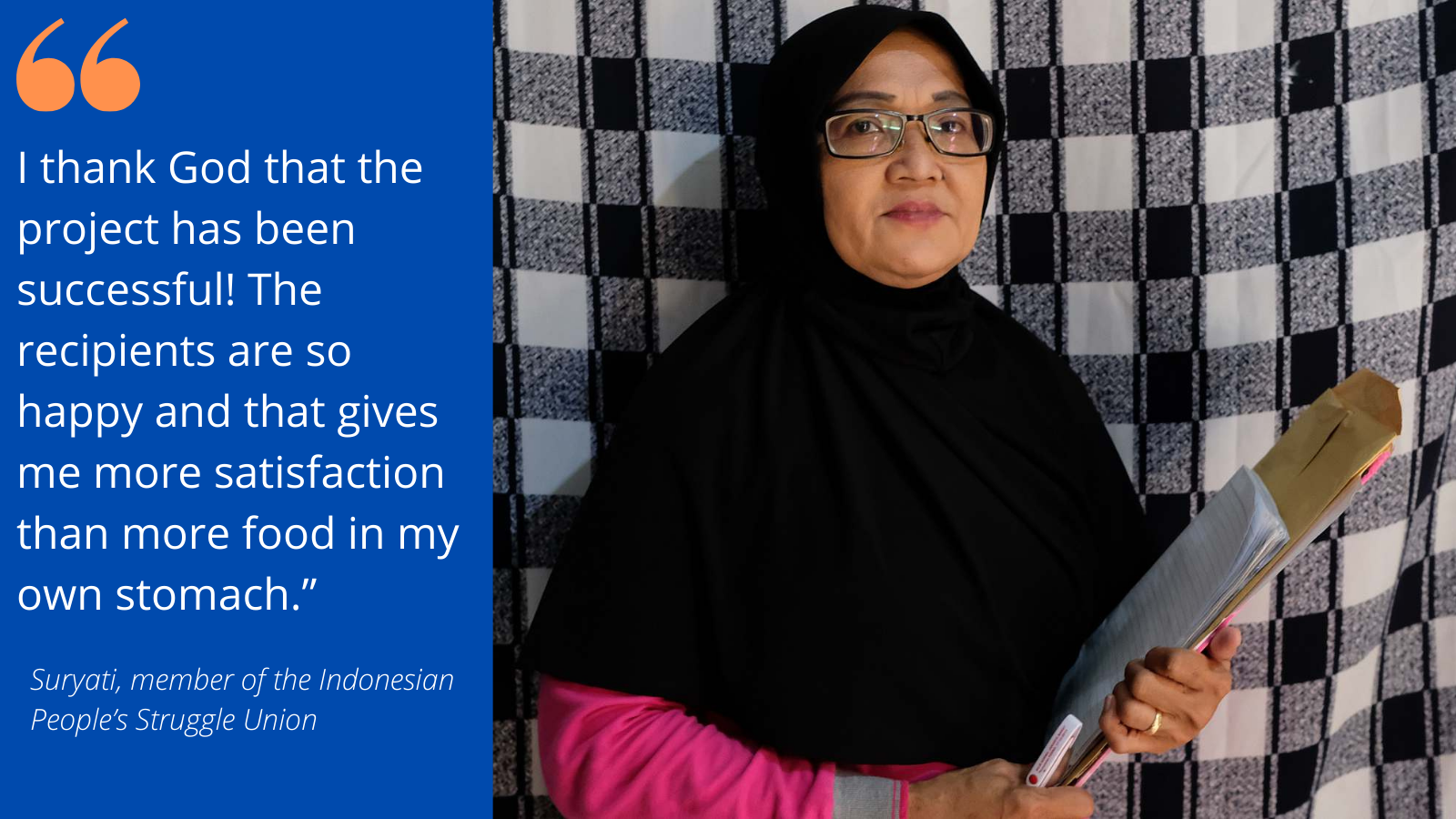
By the end of the summer, Indonesia's death toll from COVID-19 was the highest in East Asia. While the government expanded and fast-tracked access to existing social protection schemes, many people who desperately needed assistance were not getting it. In response, Suryati and her organization, the Indonesian People's Struggle Union (SPRI), scaled up their efforts to generate COVID-19 impact and eligibility data from low income households in Jakarta and used this data to advocate for the expansion of social protection benefits to more poor urban households. They leveraged technology to develop a virtual "information map" with data collected by community auditors in 28 villages. As a result of their efforts, the government allocated an additional $4 million USD in assistance to cover 3,000 households that were previously excluded. Learn more.
Nigeria
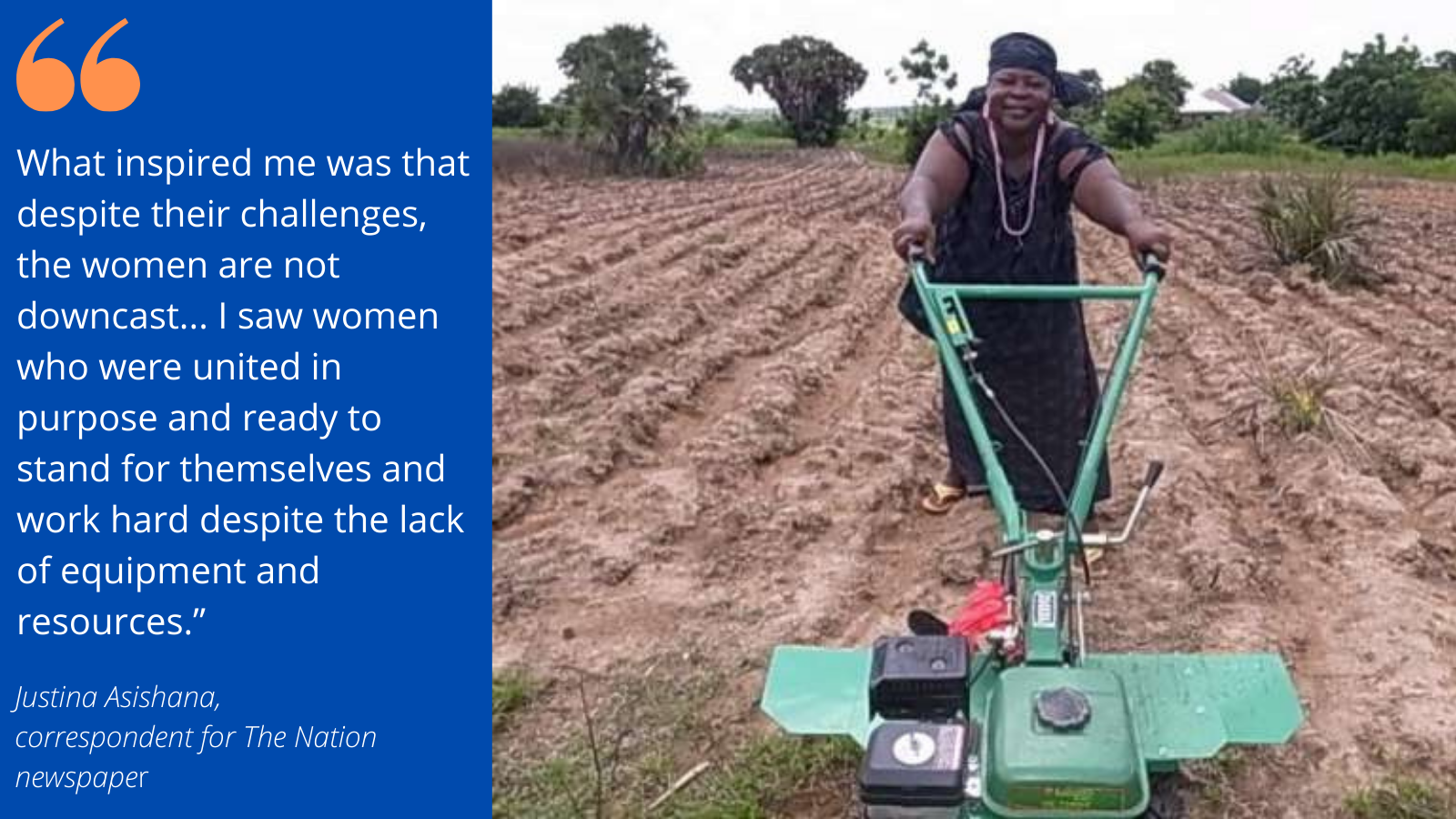
In Nigeria, smallholder farmers produce 70-80 percent of the country's crops, and 70 percent of them are women-most of them rural and often forgotten. Hannatu Soni and her organization's powerful base of a half a million women farmers, the Small-Scale Women Farmers Organization of Nigeria (SWOFON), quickly pivoted to mobilize for their demands during the COVID-19 epidemic. They forged new partnerships with journalists who raised attention to the essential work these women farmers were undertaking to feed a nation under crisis. Thanks to their advocacy, the government has started a special program to benefit small-scale women farmers and women farmers across the country have seen an increase in fertilizer allocation, access to cash transfers and other aid packages. Learn more.
Senegal
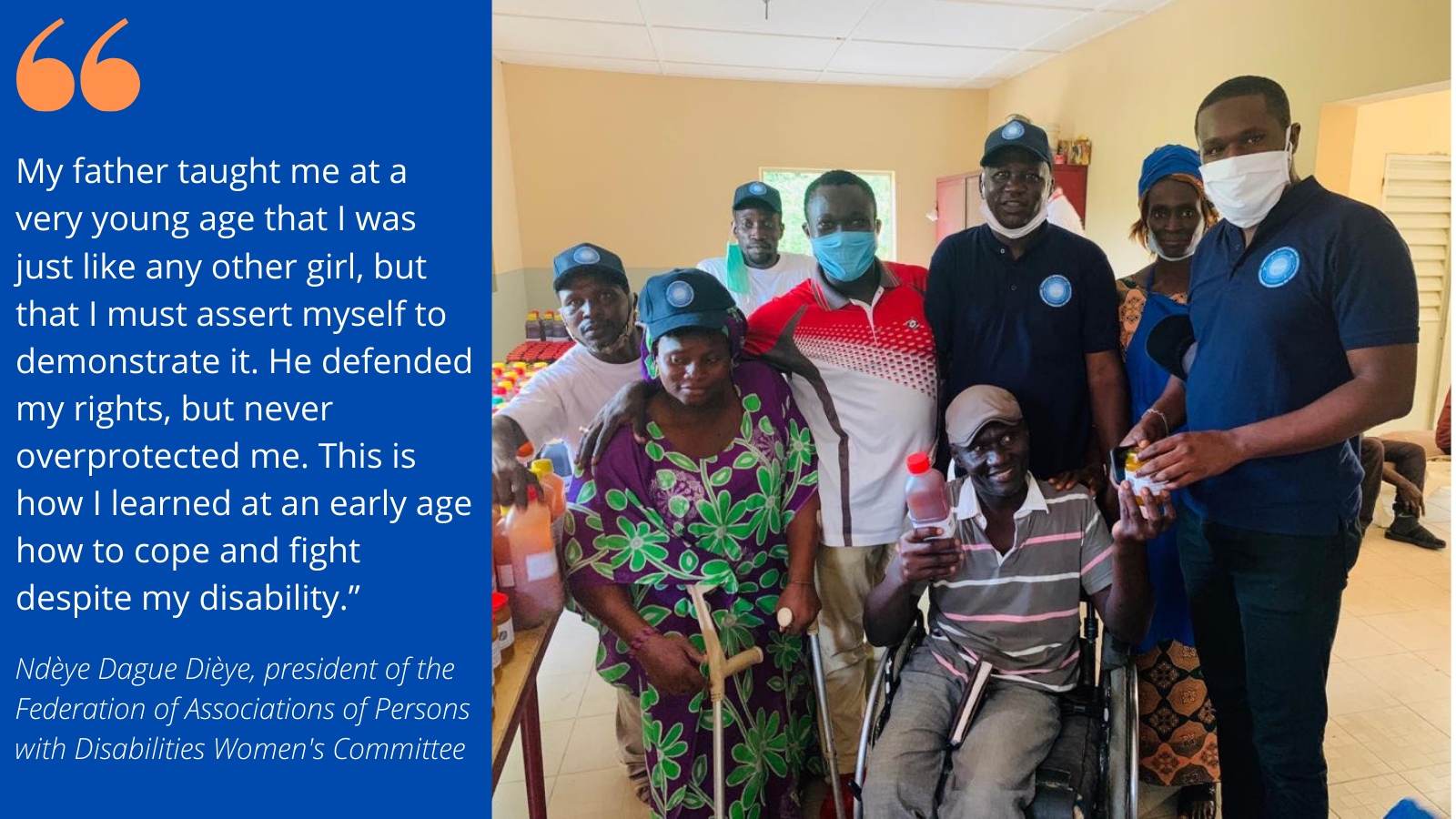
IBP and the National Federation of People with Disabilities (FSAPH) had identified a major gap in the country's social protection network: thousands of people with disabilities were missing from the national registry used by the government to determine beneficiaries of welfare services. FSAPH representatives like Nd?ye Dague Di?ye pushed to join a governmental body overseeing COVID-19 funds management, while stepping up efforts to generate evidence on potential beneficiaries. As a result, an additional 55,000 additional people with disabilities were included in COVID-19 relief packages, while the distribution of food and health packages were expanded. Most recently, the President of Senegal has ordered a full evaluation of the Social Guidance Act, which was intended to promote people with disabilities, but continues to be poorly implemented. Learn more.
South Africa
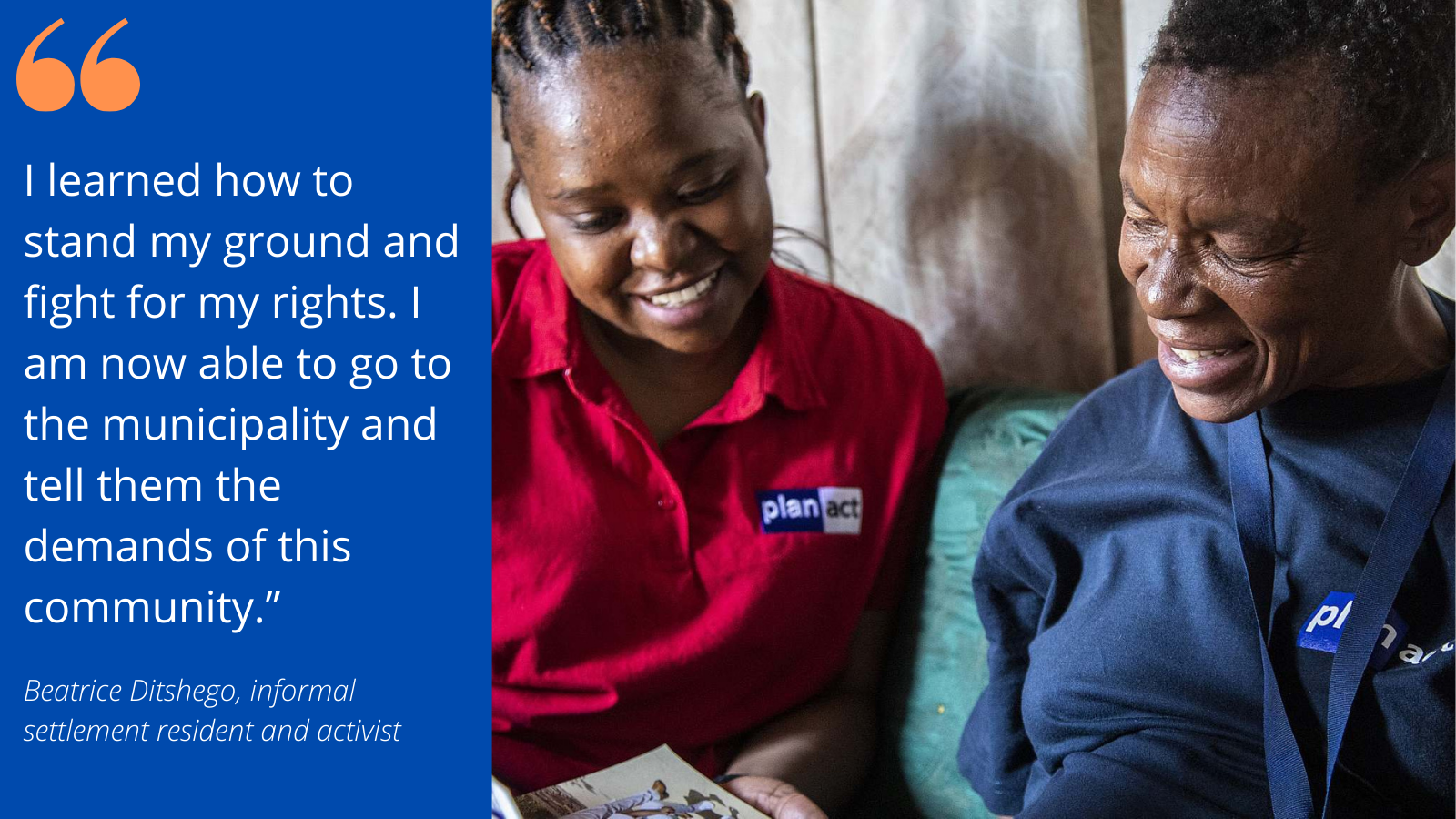
At least five million South Africans live in one of the country's "informal settlements"-a phenomenon common across the African continent. Driven by a lack of affordable housing, they are characterized by rudimentary shelters built without permits on municipal or private land. Such basic services as reliable water, electricity and sanitation are absent - this includes access to clean and safe toilets. Partnering with Planact and IBP, informal settlement residents conducted social audits to better understand the problem. Armed with concrete data from their social audit report, residents were able to directly influence the contracts to improve sanitation for more than 600,000 residents in 119 settlements. Learn more.
With heavy hearts, IBP offers its sincerest condolences to South African Auditor-General Kimi Makwetu''s family, friends and colleagues during this difficult time. We greatly valued Mr. Makwetu''s inspiring leadership, openness and integrity. He was a great champion for civic engagement and leaves a proud legacy of promoting public participation in advancing accountability. We will miss his friendship and his forward-thinking attitude that helped us and so many others.
Mark your calendars!
November 2020: IBP Learning Series: Monitoring government budget execution in the COVID era.
IBP is offering a six-part webinar series for civil society groups, designed to train members to monitor and influence government expenditures. In each webinar, we will bring together powerful examples of budget tracking from around the world and the practitioners that pioneered them. The seminars are for civic actors who are looking to learn and use innovative tools to track funds throughout the budget execution process and ensure that scarce public funds reach their intended beneficiaries.
All webinars will be held 8:30-10 a.m. ET on a Tuesday and will be recorded. Speakers will be announced in advance of each session. Register here.
November 17, 2020: Join us at 8.30 - 9.30 am EDT to discuss the new report from INTOSAI Development Initiative (IDI) and the International Budget Partnership (IBP), All hands on deck: Harnessing accountability through external public audits, an assessment of national oversight systems. Claire Schouten moderates and speakers include: Edward Olowo-Okere, Director, Global Governance Practice, World Bank; Pamela Monroe Ellis, Auditor General of Jamaica and Secretary General of CAROSAI; Hannu Takkula, European Court of Auditors and former member of the European Parliament and Parliament of Finland; Dr. Hector Freilij, former director of the National Chagas Program, Ministry of Health in Argentina; Jay Kruuse, Director, PSAM, South Africa; Einar G?rrissen, Director General, INTOSAI IDI; and Vivek Ramkumar, Senior Director of Policy, IBP. The event is accessible in Arabic, English, French and Spanish. Register here.
December 16, 2020: Join a moderated roundtable discussion on "equity and accountability in emergency fiscal measures" with Warren Krafchik, IBP executive director; Kristalina Georgieva, managing director of the International Monetary Fund; Sri Mulyani Indrawati, the Finance Minister of Indonesia; and Eugene Dodaro, Comptroller General of the United States and Head of the U.S. Government Accountability Office. Registration information to come and will be available on the IBP website.
Latest blogs & publications
From the Open Budgets Blog
Putting the "social" into "social contracts"
This blog argues that advocates for fair and equitable taxation must construct a broader narrative around the social contract as a fair agreement among free and equal people that can be justified to all who pledge to uphold it. Only then can we build effective coalitions for tax justice that explicitly endorse redistribution through the tax system.
Government budgets responding to crisis: what we can learn from the Ebola emergency
This blog reviews lessons from two of the most impacted countries by the 2014 and 2015 Ebola crisis to help understand how government budgets change in response to a crisis and how these changes can impact budget credibility, particularly in the context of the current COVID-19 pandemic.
Overcoming barriers that limit accountability of public spending
Co-authored with the World Bank and the INTOSAI Development Initiative, this blog explores how collaborations between supreme audit institutions and civil society groups can monitor government spending and ensure effective and lawful use of funds, improvement in public service delivery and response to disasters.
From challenge to advocacy: how Social Justice put children at the heart of the budget
This three-part series follows the budget analysis and advocacy learning journey of IBP's civil society partner, Social Justice in Cote d'Ivoire.
Promoting women's equal participation in the economy
This blog explores the Indian state government's intent to recognize women as workers and to present policy measures to advance this shift and include them in the paid economy.
Impact stories
One of IBP's emerging focus areas is budget credibility, or whether governments collect and spend funds according to their approved budget. On the IBP story portal, we focus on the issue of road maintenance in Ukraine.
As part of our audit accountability initiative, we're exploring how strategic engagement between key oversight actors from within and outside government can prompt action on public audit findings that are currently being ignored. On the story portal, we share how civil society and public auditors combat corruption and inefficiencies in Nepal, assure safe school environments in Sierra Leone and fight an infectious disease in Argentina.
Joint work
As part of the Fiscal Openness Accelerator Project IBP and the Global Initiative for Fiscal Transparency are supporting the technical capacity of selected governments-Benin, Liberia, Nigeria, Senegal and South Africa- to improve the relationship between governments and state-owned enterprises (SOEs). In October we co-hosted three workshops on the topic - materials from the sessions are available here.
Help us spread the word. Share this email, with others! Tell them to subscribe. Let's work for change. Together.
|






 Arts and Entertainment
Arts and Entertainment Business and Industry
Business and Industry Computer and Electronics
Computer and Electronics Games
Games Health
Health Internet and Telecom
Internet and Telecom Shopping
Shopping Sports
Sports Travel
Travel More
More